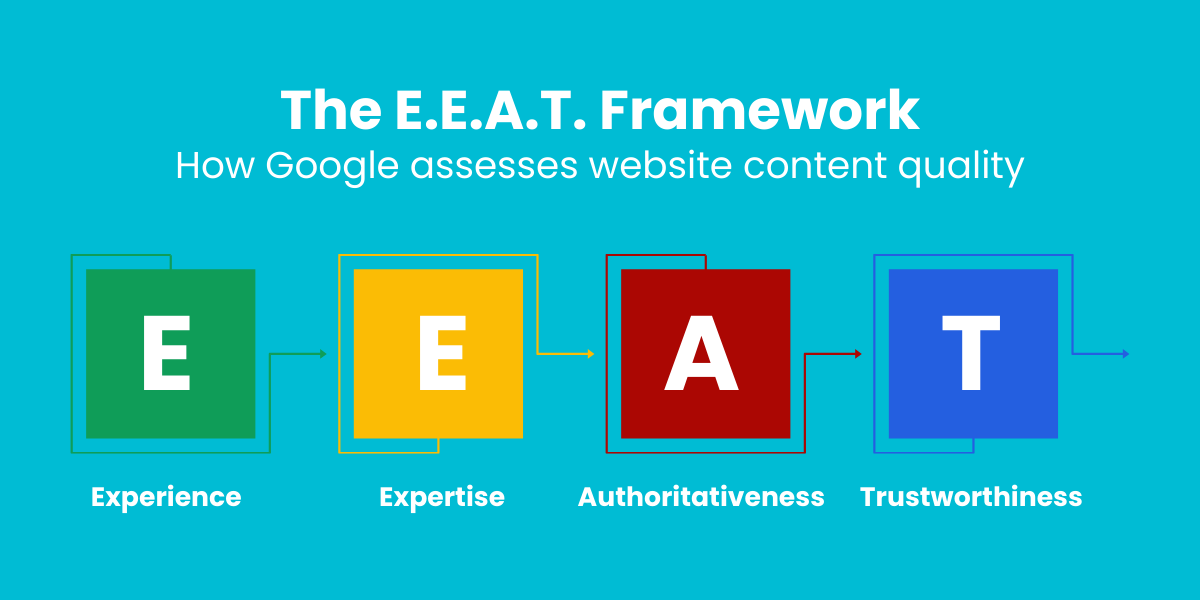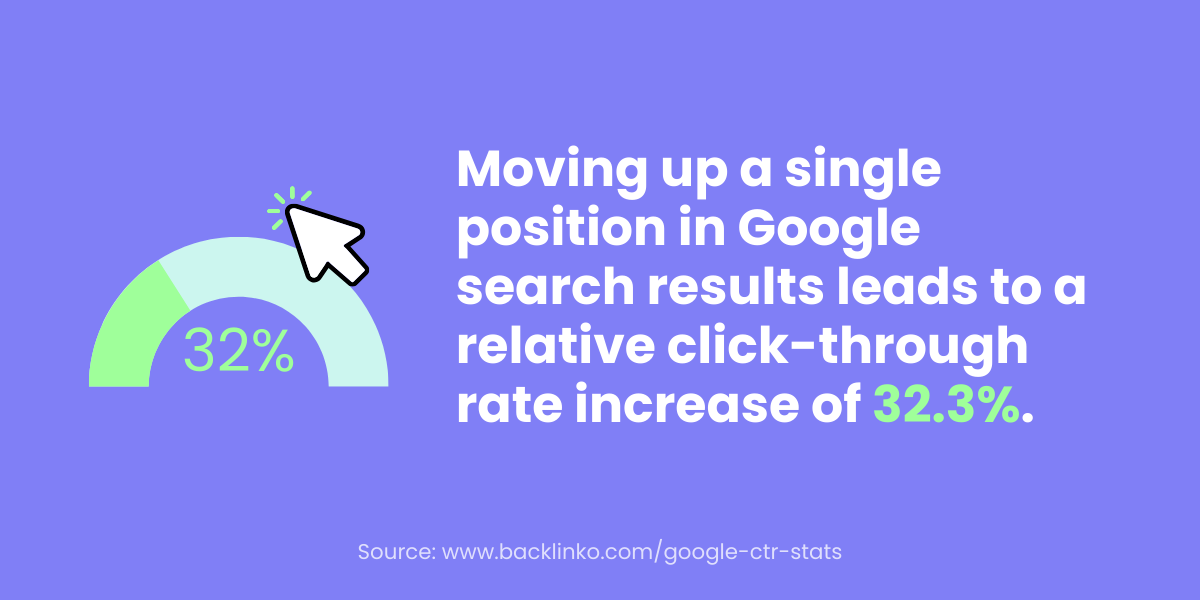The financial services industry is built on trust, and people need to feel confident the companies handling their money are reliable. So when they search online for financial advice, they need to know that the source of information is legitimate and trustworthy. That’s where SEO for financial services comes in.
A solid SEO strategy can establish a financial company’s website as an authority Google can trust. This leads to higher rankings and greater visibility in organic search results.
But ranking higher than your competitors requires more than just adding a few keywords to your web copy. Truly effective SEO for financial services involves a strategy with many factors. This SEO strategy includes using long-tail keywords, improving user experience, generating quality content, and optimizing for local search.
Why Prioritizing SEO Is Crucial for Financial Service Companies
Financial products are complex. Often, people don’t know where to start.
A 2022 study showed 85% of Americans prefer to do their banking online. The more detailed, accurate content a financial services company provides about their services, the better equipped customers are to make smart choices.
Providing clear and trustworthy information benefits financial services providers.
And with organic searches accounting for a large proportion of web traffic to financial services websites, ignoring content marketing would be a huge mistake.

Understanding Google’s E-E-A-T Guidelines for Financial SEO
Google uses E-E-A-T to evaluate websites. This stands for expertise, experience, authoritativeness, and trustworthiness. All four qualities are crucial to your SEO strategy and gaining Google’s trust.
So how do you build a financial services website that embodies E-E-A-T?
1. Expertise
Google needs to know the information on your website comes from subject matter experts. Showcase professionals from your company with years of experience or professional certifications. Linking author bios with the content on your website lets Google know about your content creators’ qualifications, builds confidence, and shows your commitment to quality and accuracy.
2. Experience
Personal experience is invaluable in content marketing for financial service providers. Sharing personal stories from your professionals builds trust. This is because clients want more than just data; they connect with real experiences.
3. Authoritativeness
Share insightful, original, and data-driven content. Do this regularly across various platforms. This lets both clients and search engines know you’re a trustworthy source of information.
Articles, blog posts, white papers, and speaking at conferences all build your authority. But don’t be afraid to get creative. Useful online tools like budgeting or investment calculators also build authority.
4. Trustworthiness
Gaining Google’s trust in the financial sector demands a multifaceted approach. It’s easy to only highlight the positive when talking about money. However, a trustworthy financial website acknowledges the risks while remaining solutions-oriented.
People trust websites they deem credible and Google trusts what people trust. Being honest and focusing on content quality boosts your authority. This tells Google you can be relied upon for accurate and current financial advice.

What Else Can Help Improve SEO for Financial Services?
E-E-A-T is only one piece of the puzzle.
Most internet traffic begins with a query typed into a search engine. Knowing which keywords bring visitors to your website is important, particularly those local SEO terms such as “bank near me.” This helps create targeted, keyword-driven content strategies for more effective financial services SEO.
Optimize Existing Content
Updating old content for SEO may not sound glamorous. But, Google favors content that is relevant, timely, and high quality.
Giving your existing content a refresh could significantly impact your ranking on Google’s search engine result pages (SERPs). Your content isn’t helping anyone if no one is reading it.
Content optimization improves clarity and accuracy. It also incorporates new high-performing keywords. These keywords should match what your ideal client is typing into a search engine.
Re-optimizing metadata, such as titles, URLs, and descriptions also helps. Do this with a strategic blend of related terms. This helps search engines understand the page and can boost your ranking performance.
Improve Technical SEO
Search engine algorithms find web pages. They then interpret their relevance and value to users’ search queries. This is known as crawling.
Google has gotten better at understanding content over the years. However, giving it a little help goes a long way in increasing searchability and visibility.
You can do this by cleaning up your website’s code (HTML, CSS, JavaScript, etc.). This impacts a website’s accessibility. It also impacts how search engines crawl, index, and rank pages in the SERPs.
Link Building Strategies That Really Pay Off
You’ve built trust with Google and honed in on a successful content marketing strategy. But you’re still not ranking as high as you’d like. What now?
For many companies, acquiring quality backlinks is one of the best investments to amplify financial service SEO. Google wants to see other websites praising yours.
Create expert content other finance websites will find valuable. This builds trust and increases the authority of the linked-to content.
High-value content for a financial services site might be:
- Market analysis.
- Financial planning tips.
- Research findings on financial investments.
- Guides for people who want to invest their money.
Some websites charge to add your link. These are often called “sponsored posts.” However, natural link building involves mutually-beneficial partnerships with credible sites.
You can also reach out to high-traffic blogs. Ask about potential guest posting opportunities on websites like:
- Yahoo Finance
- Business Insider
- Investopedia
- Forbes
Offering a subject matter expert to provide commentary on financial issues can also help. This builds backlink opportunities by increasing your expert’s, company’s, and content’s name recognition.

Use Social Media to Build Relationships
Social media has changed how we connect in the financial industry. But it can also be a powerful tool for most financial services SEO strategies.
Staying active on social platforms lets you interact with potential clients. It allows you to get client feedback, establish brand recognition, and build relationships.
Sharing high-quality content helps build an engaged following. Content that answers users’ financial questions on platforms like Facebook, TikTok, X, or Instagram can be effective.
When it comes to your content creation, think about who you want to attract. Someone who wants to get out of student loan debt might be more receptive to financial advice on TikTok. Someone looking for wealth management advice might gravitate toward a platform geared towards business professionals, like LinkedIn.
Choosing the right platform for your social media marketing strategy increases engagement. It helps you meet your audience where they already are.
Conclusion
Well-thought-out SEO for financial services is an essential component for a successful marketing strategy. This is because it allows financial institutions to increase their online visibility, drive more traffic to their website, and ultimately, attract new customers.








